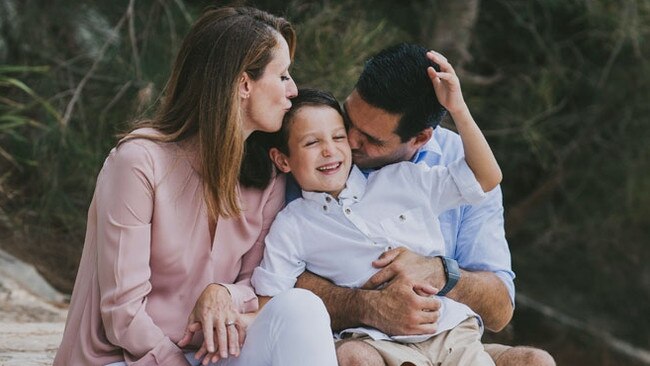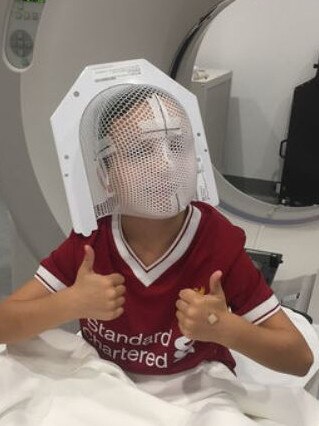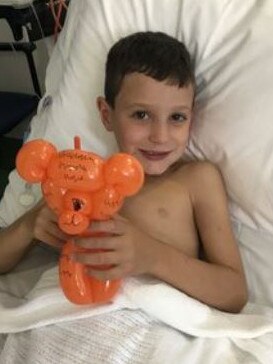Glimmer of hope for deadly DIPG cancer that kills 20 Aussie kids a year
A cutting-edge Australian trial that modifies children’s own immune cells to fight the deadly DIPG brain cancer is being hailed as a game-changer for kids struck by the cruel disease.
NSW
Don't miss out on the headlines from NSW. Followed categories will be added to My News.
Young Levi Wheeler died in 2018 from a rare brain cancer, but a new trial named in his memory has given a glimmer of hope to families facing a similarly stark diagnosis.
The trial at Randwick’s Sydney Children’s Hospital will use a child’s own immune cells modified to specifically target diffuse intrinsic pontine glioma (DIPG) and diffuse midline glioma tumours.
The treatment, known as CAR-T cell therapy, is already being used to successfully treat leukaemia.
DIPG is a rare but universally fatal brain cancer that has been resistant to all known treatments.
Children are given eight to 12 months to live after diagnosis, and the cancer kills around 20 children a year in Australia.

The trial, called Levi’s Catch, will modify a patient’s own immune cells in a laboratory to teach them to target and attack the tumour.
The hope is that once reinfused into the patient, these immune cells will have the ability to seek out and destroy DIPG cancer cells without damaging most other healthy cells.


Levi was diagnosed with the brain cancer on December 20, 2017, just over one month after his seventh birthday. His parents Ben and Kathryn watched on as the cruel disease quickly stole their boy.
“The tumour stole his steps. Made his words disappear. It strangled his swallowing and starved him of his breath, until his life was extinguished before our very eyes,” Mrs Wheeler wrote of her eight-year-old’s final days.
“Mercilessly, the cancer left Levi conscious and cognisant of thought to the very end, so he was acutely aware of the savagery that was happening, a defenceless witness to his own suffering.”
In honour of their son, the couple have raised over $4 million for DIPG research.
The fast-growing and incurable tumour forms in part of the brain stem called the pons, which is responsible for vital functions like breathing, sleeping, bladder control, and balance.
Levi’s Catch clinical trial lead Professor David Ziegler said this treatment was at the cutting edge of treating DIPG.
“This is a completely new way of attacking this deadly brain cancer,” Prof Ziegler said.
“If we can take what we have already learnt in the use of CAR-T cell therapy for treating other childhood cancers and translate this to help treat kids with brain cancer, it could be a game-changer.”
Levi’s Catch is open to children across Australia and is a collaboration between the Kids Cancer Centre at the Sydney Children’s Hospital, the Children’s Cancer Institute, Royal Adelaide Hospital and the University of South Australia, with support from the Cancer Institute NSW.
Got a news tip? Email jane.hansen@news.com.au


